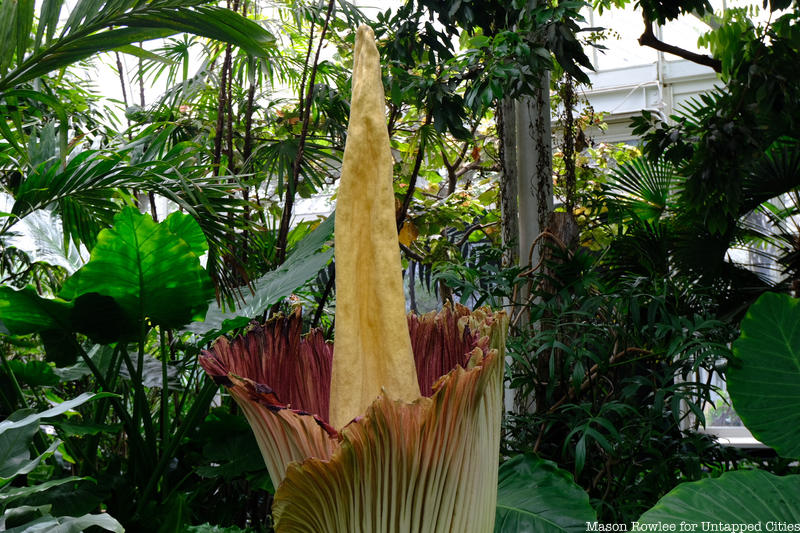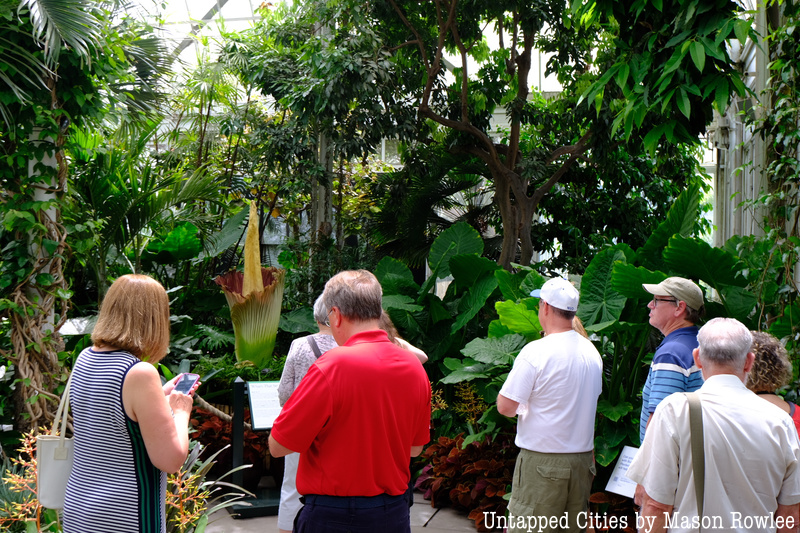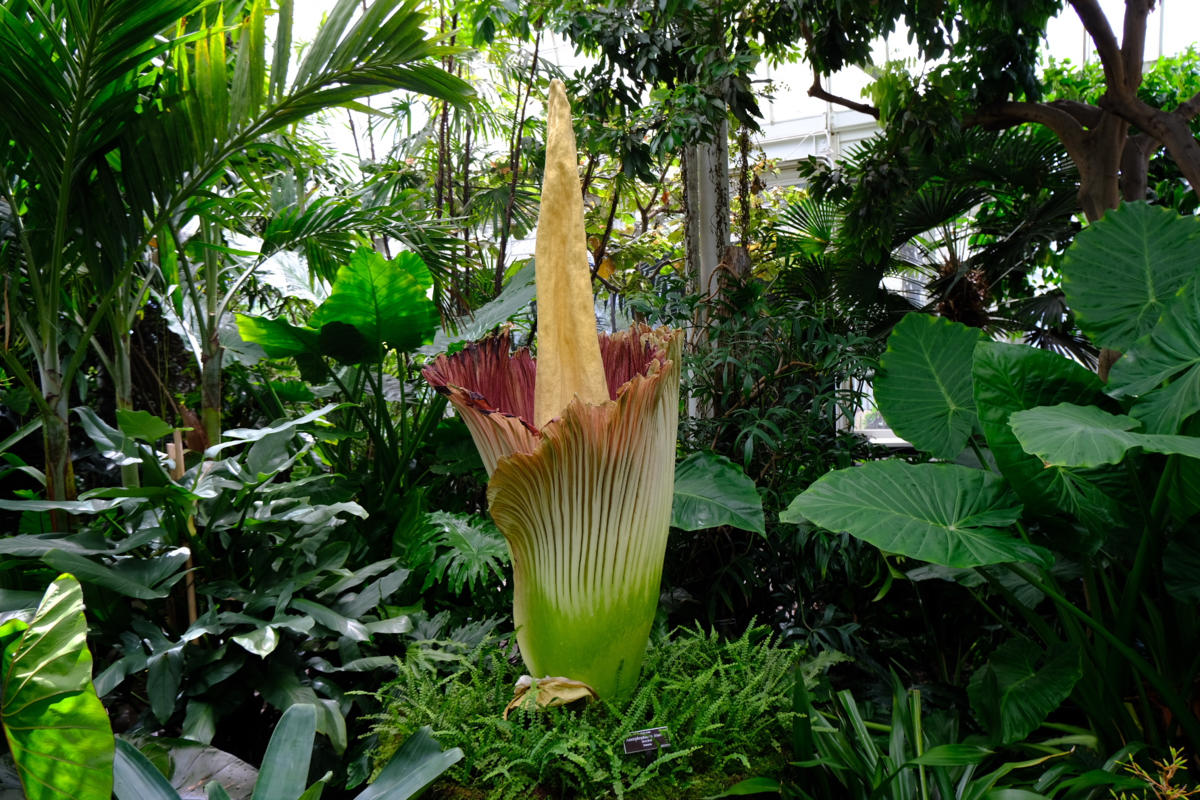After the corpse flower at the New York Botanical Garden bloomed for the first time in 1937 and 1939, New Yorkers had to wait 80 years to smell its stench once again. The most recent bloom occurred in 2019 and another bloom is just around the corner. Update: The New York Botanical Garden has announced that the 12-year-old corpse flower now inside the Enid A. Haupt Conservatory started to bloom late on the night of Monday, April 3rd! Once the bloom begins, it only last 24 to 48 hours.

Scientifically known as Amorphophallus titanium (also referred to as Titan-Arum), the corpse flower is native to the island of Sumatra in Indonesia. It gets its colloquial name from the foul smell it releases when it blooms. The scent has been described as one that resembles the smell of rotting meat. This odious odor, along with the red color of its spathe in bloom, serves to attract pollinators that feed on dead animals.
To produce its famous scent, the plant’s spadix – the fleshy central spike – heats to approximately the temperature of the human body. This helps to disperse the odor particles. Next, the spathe – the frilly leaf that surrounds the spadix – slowly unfurls. At the end of the bloom, the spathe closes, and the spadix withers. It can take a corpse flower up to seven to ten years to store enough energy to begin a bloom cycle, but once the spathes unfurl, the bloom only lasts a couple of days.

When the corpse flower blooms, it’s a big event. The 1937 bloom was the first time this type of flower had bloomed in the Western Hemisphere. When it happened again in 1939, The Bronx Borough President commemorated the occasion by making the corpse flower the official flower of the Bronx. (Since 2006 it’s been the daylily.) In 2016, more than 25,000 visitors flocked to the Botanical Garden to get a whiff. Untapped New York visited the Garden for the 2019 bloom!
Update: You can check for updates on the Amorphophallus titanum webpage and watch the flower bloom on the Garden’s live stream here.
Next, check out 10 Secrets of the New York Botanical Garden






